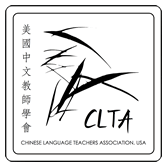Galal Walker
I am grateful to receive the Cheng and Tsui Walton Award from the CLTA. It is an honor that I accept with the knowledge that this award reflects the work of many colleagues, especially in the NEALRC. My colleague Dr. Minru Li should be receiving this for his contributions to the field of Chinese language study and to the CLTA. I have a feeling that he recommended me when, in all fairness, I should have been recommending him. Although I do not know in particular to whom I should address this: I would like to acknowledge those who nominated me and wrote supporting letters and thank them for their generosity and good will.
I thank the CLTA for creating this award in Ron Walton’s name and further thank the Cheng and Tsui Company for sponsoring it. This company has become an important part of the foundation of Chinese studies in the United States and beyond and its founder, Jill Cheng, was a person that Ron Walton deeply respected.
I do not want to miss this opportunity to say a few words about Ron Walton, the important name on this fine looking plaque. If you are enjoying a career focused on researching and advancing the teaching and learning of Chinese in America, you should from time to time think fondly of Ron. I, for one, would not be in this field were it not for him. Ron took the lead in advocating for the role of a Chinese language professional on university faculties that then only permitted positions in literature and linguistics. It was a radical position and Ron paid a professional and personal price for his work on Chinese language (and other less-commonly-taught languages) at the expense of what an older colleague referred to as “a most promising career in Chinese linguistics” that would have led to the promotions one expects from a successful academic career. We in no small measure should thank Ron for the fact that today there are numerous accomplished professors in universities across this country who are declared specialists in Chinese language learning and instruction.
As a graduate student and young faculty member, I was thinking only of a possible career in literature and Ron was excited about improving the learning and teaching of Chinese. His long-term, yet unrealized, goal was to write a book about learning Chinese from the learner’s point of view. He was far ahead of the times by focusing on the learning and how increasing our knowledge of learning processes would improve Chinese language study.
Ron was an early supporter of K-12 Chinese language instruction and an enthusiastic advocate of CLASS (Chinese Language Association of Secondary-elementary Schools). He spent a generous amount of time looking for ways to encourage and support the teachers building that organization.
A reading of his writings shows that Ron was interested in the “architecture of the field” and thus encouraged us to look at the institutionalization of Chinese language learning in this country. Very early Ron on understood that in order to train Americans to advanced levels of Chinese language proficiencies, we needed to build an infrastructure that explicates and supports the entire process. He was involved in advancing our understanding of material development, teacher training, and program building throughout his career. His ideas were the origin of such programs as “The Language Flagship” and the “Language Resource Centers”. Although the final form and results of these organizations fall far short of his concepts, he did demonstrate that understanding the present and looking into the future can lead to meaningful change.
Ron understood the importance of China and the increasing impact Chinese language and culture will have on American life. He genuinely appreciated the work that Chinese language teachers do everyday and took great enjoyment from all of your successes.
Thank you again for this meaningful award that represents his sentiments.
